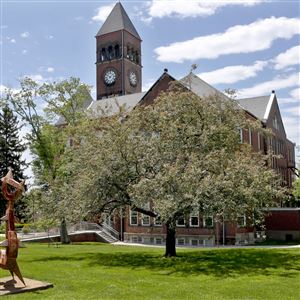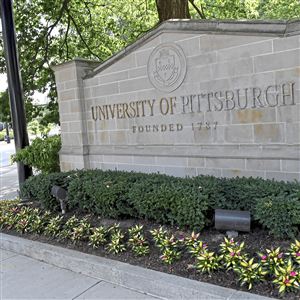A Pennsylvania state senator hopes to stop legacy admissions at Pennsylvania universities as the practice of considering alumni relations during the admissions process becomes increasingly scrutinized.
Sen. Anthony Williams, D-Philadelphia, plans to introduce legislation this fall that would ensure merit-based admissions are the standard at public and private schools in the Keystone State. Mr. Williams told the Post-Gazette that the Supreme Court’s June decision to restrict race-based affirmative action in college admissions spurred his planned ban.
“What’s good for the goose is good for the gander,” Mr. Williams said. “These legacy admissions are clear and very obvious advantages for a student [who has] family lineage.”
Mr. Williams’ planned legislation comes two years after Colorado became the first state to ban legacy admissions at its public universities. New York, Connecticut and Massachusetts are considering similar bills. Last week, U.S. Secretary of Education Miguel Cardona indicated that the court’s affirmative action decision could be the nail in the coffin for the practice.
And last month, the U.S. Education Department opened a civil rights investigation into Harvard University’s legacy admissions policy.
If a Pennsylvania ban comes to fruition, it won’t have bearing on Carnegie Mellon University and the University of Pittsburgh, which have both axed legacy admissions in the past few years. The two most selective universities in Western Pennsylvania are among 100 other colleges and universities that have ceased legacy consideration since 2015.
Carnegie Mellon, which has an 11% acceptance rate, ditched legacy consideration during the 2022-23 academic year, according to its Common Data Set. Legacy status was considered an “important” factor in the admissions process in the years prior to 2021, data show.
Carnegie Mellon spokeswoman Cassia Crogan told the Post-Gazette that the university has evaluated applicants “irrespective of legacy status” for several years. The university made that shift to “ensure equity throughout the admission process for all students,” she said.
“At Carnegie Mellon University, all applicants for admission are evaluated fairly and individually. This process is designed to provide consideration in the context of a student's academic and non-academic preparation,” Ms. Crogan said via email.
Meanwhile, Pitt data show that the state-related school considered alumni status until the 2022-23 school year. The Oakland campus has an acceptance rate of 49%.
Pitt spokesman Jared Stonesifer said alumni status hasn’t carried significant weight at Pitt for years, pointing to a 2004 article from The Pitt News that says familial connections only played a role in “borderline” decisions. When numerous wealthy parents were indicted for the nationwide college admissions bribery scandal in 2019, Pitt reassessed its admissions processes, Mr. Stonesifer said.
“Again, legacy has never been a primary or ‘plus’ factor in Pitt admissions of undergraduates,” he wrote via email.
Penn State, on the other hand, continues to consider alumni status, but not for general admission to its 24 campuses. University-wide admission is based solely on grades and test scores, while campus admission may weigh legacy status, race, residency and numerous other factors, per university data. Penn State’s main University Park campus has an acceptance rate of 55%.
The university is reviewing its admissions and campus placement procedures in light of the Supreme Court’s affirmative action decision, university spokesman Wyatt DuBois told the Post-Gazette.
“Regardless of campus placement, Penn State is one university with one accreditation,” Mr. DuBois said via email.
Mr. Williams’s legislation could have a stronger impact on some of eastern Pennsylvania’s most selective schools, such as the University of Pennsylvania and Swarthmore College, which both still consider legacy status.
At Penn and similar elite private institutions, legacy admissions serve as a revenue strategy, explained Joni Finney, an education consultant and the former director of Penn’s Institute for Research on Higher Education. Wealthy families continue supporting their alma mater for generations.
“Their parents will donate, [the children] will donate,” Ms. Finney said. “[The schools are] trying to create a strong intergenerational link to the university.”
Questions about the fairness of alumni-based admissions started to bubble before the affirmative action decision, Ms. Finney said. Under 50% of private institutions still consider familial connections, but that number is upward of 80% at America’s most prestigious schools.
Some believe higher education institutions are meant to serve as vehicles toward upward mobility for people of all economic backgrounds, Ms. Finney said. Legacy admissions could hinder this by guaranteeing a certain number of spots to a pool of wealthier students.
“Some people have dubbed it ‘affirmative action for the rich,’” Ms. Finney said. “I don't go that far, but I think it was unfair to begin with. I think the most important thing is for institutions to provide educational opportunity writ large — for all students, from all income levels and from all backgrounds.”
First Published: August 7, 2023, 9:30 a.m.
Updated: August 9, 2023, 8:43 p.m.




















